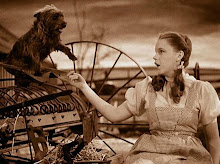
Gross Motor Skills - What are Gross Motor Skills:
Gross motor skills involve the large muscles of the body that enable such functions as walking, kicking, sitting upright, lifting, and throwing a ball. A person's gross motor skills depend on both muscle tone and strength. Low muscle tone, or hypotonia, is a characteristic of several disabling conditions such as Down syndrome, genetic or muscle disorders, or central nervous system disorders.
Gross motor skills involve the large muscles of the body that enable such functions as walking, kicking, sitting upright, lifting, and throwing a ball. A person's gross motor skills depend on both muscle tone and strength. Low muscle tone, or hypotonia, is a characteristic of several disabling conditions such as Down syndrome, genetic or muscle disorders, or central nervous system disorders.
Gross Motor Ability is a Critical Life Skill:
Gross Motor skills are important for major body movement such as walking, maintaining balance, coordination, jumping, and reaching. Gross motor abilities share connections with other physical functions. A student's ability to maintain upper body support, for example, will affect his ability to write. Writing is a fine motor skill. Students with poor gross motor development, may have difficulty with activities such as writing, sitting up in an alert position, sitting erect to watch classroom activity, and writing on a blackboard.
Gross Motor skills are important for major body movement such as walking, maintaining balance, coordination, jumping, and reaching. Gross motor abilities share connections with other physical functions. A student's ability to maintain upper body support, for example, will affect his ability to write. Writing is a fine motor skill. Students with poor gross motor development, may have difficulty with activities such as writing, sitting up in an alert position, sitting erect to watch classroom activity, and writing on a blackboard.
Gross Motor Skills - Addressing Gross Motor Weaknesses:
If you suspect your child has gross motor weaknesses that may affect his education, discuss this possibility with your child's IEP team. Evaluation by a physical and/or occupational therapist can determine how severe the problem is and provide therapy to improve your child's gross motor skills.
If you suspect your child has gross motor weaknesses that may affect his education, discuss this possibility with your child's IEP team. Evaluation by a physical and/or occupational therapist can determine how severe the problem is and provide therapy to improve your child's gross motor skills.
The IEP team will use therapists' assessments and other evaluation data to determine if your child needs regular therapy as a related service. If your child needs therapy to benefit from specially designed instruction, these services will be written into the individual education program.

No comments:
Post a Comment